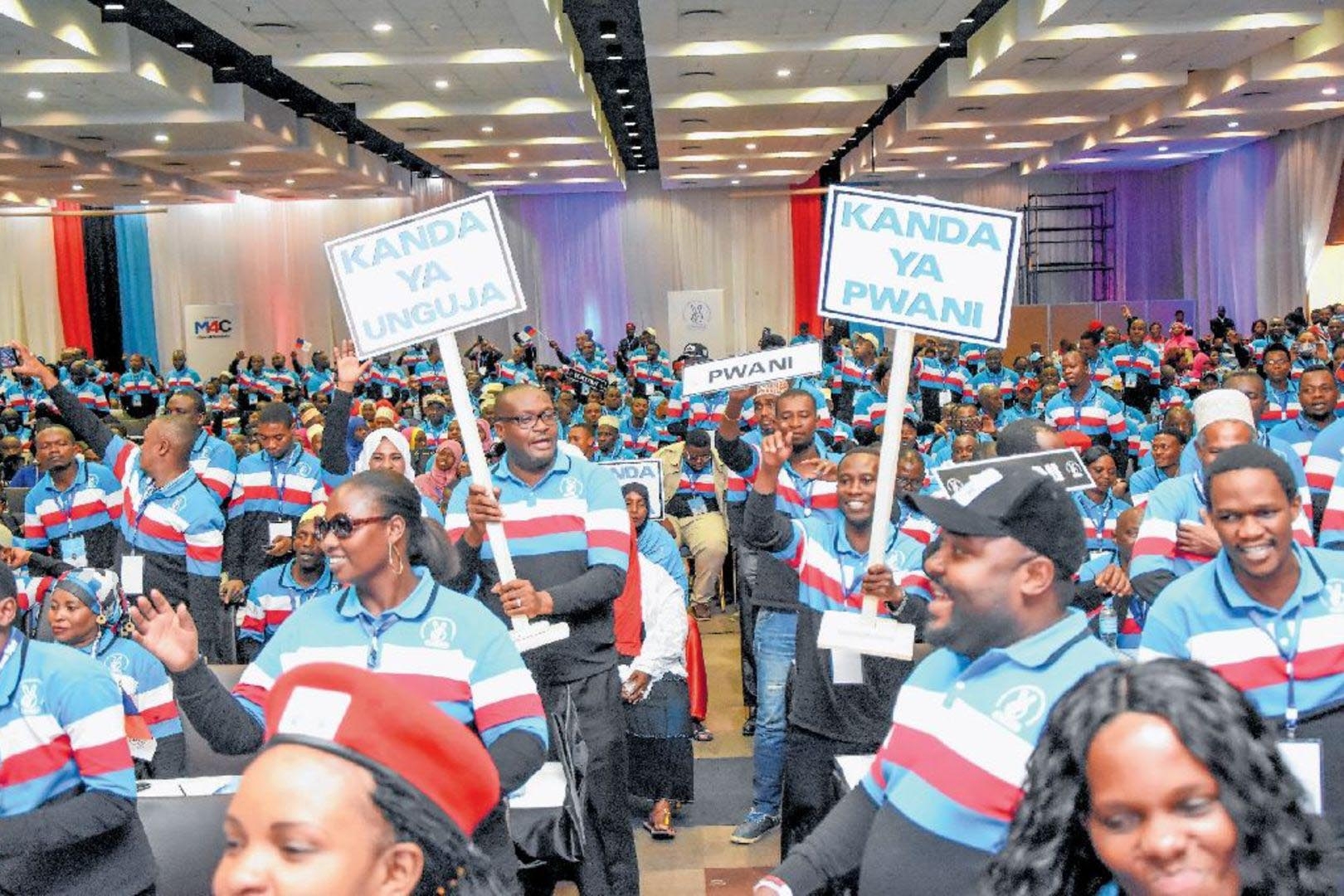Prime
Lawyers split over Chadema disqualification controversy

Delegates attend Chadema's congress in Dares Salaam in January 2025. PHOTO | FILE
What you need to know:
- Legal experts and political analysts are divided over INEC’s position
Dar es Salaam. A legal storm is brewing following the announcement by the Independent National Electoral Commission (INEC) that opposition party Chadema will be barred from participating in the 2025 General Election and any subsequent by-elections for five years after refusing to sign the new electoral code of conduct.
During the April 12 signing event in Dodoma, INEC director Ramadhan Kailima declared, “A party which did not sign the code will not participate in this year’s general election or subsequent by-elections for five years.”
INEC chairperson Justice Jacobs Mwambegele emphasised that signing the Electoral Code of Ethics was a legal requirement following consultations with all political parties.
“The code is a mutually agreed commitment to ensure fairness and peaceful conduct during campaigns and on election day. Political parties that choose not to sign it are deemed to have opted out of the electoral process,” he said.
The announcement has sparked outrage and legal debate.
In response, Chadema legal counsel Rugemeleza Nshala held a press conference on April 15, describing INEC’s directive as unconstitutional.
He questioned the commission’s authority to restrict participation based on a code that only applies after candidate nominations.
“Who has been nominated so far? No one. The period stipulated in clause 1.3 of the code hasn’t even started. So how can parties be forced to agree to terms not yet in effect?” Dr Nshala asked.
He referenced a 1995 Court of Appeal ruling (AG, Radio Tanzania Dar es Salaam vs Dr Amani Kaburu), which reaffirmed that elections must be conducted fairly and within legal limits.
“We expected better from a Commission led by justices. This is a betrayal of judicial integrity,” Dr Nshala added, arguing that Chadema was not given sufficient time to respond to the invitation to sign.
Additionally, Chadema deputy secretary-general (Mainland) Amani Golugwa accused INEC of deliberately misleading the public.
“We were compelled to respond after confirming that the Director of Elections made misleading statements, knowingly stirring public confusion,” he said.
However, legal experts and political analysts are divided over INEC’s position, with some calling it a misinterpretation of electoral laws and a threat to democratic rights, while others defend it as a reasonable enforcement of electoral procedure.
They point to Article 162(1)(a) of the 2024 Presidential, Parliamentary and Councillor Elections Act, which mandates the commission to prepare and publish the electoral code in the Government Gazette. However, the Act does not mention disqualification as a penalty for refusing to sign.
While Article 162(2) requires parties and candidates to sign, and Article 162(3) outlines penalties for violations, Section 1.5(a) merely states that non-signing parties may be barred from campaigning—not from participating entirely.
“There’s no law that bars a party from contesting elections for not signing the code. This is a flawed interpretation,” said Tanganyika Law Society (TLS) President Boniface Mwabukusi.
Prominent lawyer Edson Kilatu agreed, saying the law does not specify penalties for declining to sign. “The right to participate in elections is a constitutional guarantee. It can’t be revoked over a missing signature,” he said.
Similarly, University of Dar es Salaam law lecturer Onesmo Kyauke emphasized that constitutional rights take precedence over subsidiary laws.
“If Chadema is denied participation based on this, they have legal grounds to challenge the decision,” he said, noting that the code had not yet been published in the Gazette and thus lacked legal force.
“The process was legally premature. You cannot enforce what hasn’t been formalized,” Dr Kilatue added. He also noted that the law does not impose a deadline for signing the code.
Mwanza-based lawyer Steven Kaswahili argued that while the Constitution provides the right to participate in elections, that right must be exercised within legal frameworks set by Parliament.
“If Parliament enacts a law requiring parties to sign a code of conduct as a condition for participation, and that code is applied fairly, then it becomes a procedural requirement,” he said.
Mr Kaswahili added that while the electoral code must not be abused to silence dissent, parties cannot selectively comply with laws they disagree with, especially when the same code applies to all players.
“If a party refuses to commit to the minimum standards of conduct, the Commission can reasonably conclude that such a party is unwilling to play by the rules,” he noted.
Another lawyer, Mr Sweetbert Nkuba, urged dialogue.
“Laws often leave room for interpretation. That’s why cases can swing across courts. It’s better if both parties engage constructively.”





